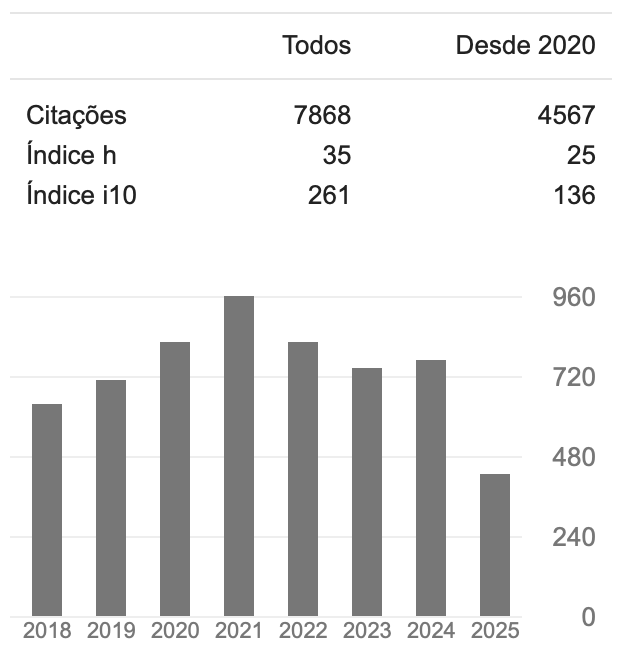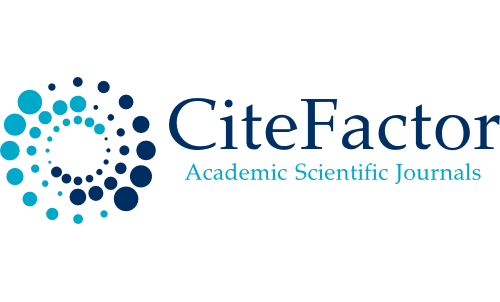Perspectivas de brasileiros sobre informações relacionadas à Covid-19: uma análise baseada na bioética
DOI:
https://doi.org/10.17765/2176-9206.2022v15n1.e9948Palavras-chave:
Bioética, Conhecimento, Pesquisa, Saúde global, SustentabilidadeResumo
Objetivou-se avaliar as perspectivas de brasileiros quanto às experiências relacionadas ao acesso às informações sobre a Covid-19 relatadas durante o período crítico da pandemia no Brasil. Foi elaborado instrumento misto, quanti-qualitativo, construído e analisado com base em um marco interdisciplinar no campo da bioética. Os 525 participantes da pesquisa, ocorrida em junho de 2020, compartilharam perspectivas que indicam preocupação com o acesso a informações qualificadas, com a não propagação de fake news e com a desconfiança de informações advindas do governo federal, em contraponto à maior confiança em fontes científicas e de governos municipais e estaduais. O conhecimento sobre o modo como os brasileiros se relacionaram com informações a respeito da Covid-19 é fundamental para que medidas preventivas, educativas e regulatórias sejam efetivas na formulação de políticas públicas em saúde em um futuro pós-pandemia.Downloads
Referências
1. Fischer ML, Cunha TR, Renk V, Sganzerla A, Santos JZD. Da ética ambiental à bioética ambiental: antecedentes, trajetórias e perspectivas. Hist Cien Saúde. 2017; 24(2):391-409. doi: https://doi.org/10.1590/s0104-59702017000200005
2. Sayago M, Lorenzo C. O acesso global e nacional ao tratamento da hemofilia: reflexões da bioética crítica sobre exclusão em saúde. Interface (Botucatu). 2020; 24:e180722. doi: https://doi.org/10.1590/interface.180722
3. Goldim JR. Bioética e pandemia de influenza. Rev HCPA (Porto Alegre) [Internet]. 2009 [citado em 2020 jun. 27]; 29(2):161-6. Disponível em: https://www.lume.ufrgs.br/handle/10183/163445
4. Aveni A. Estratégias pelo trabalho no futuro devidos à pandemia Covid-19. Rev Proc Pol Pub Des Soc. [Internet]. 2020 [citado em 2020 jun. 27]; 2(3):4-14. Disponível em: http://periodicos.processus.com.br/index.php/ppds/article/view/187
5. Jones DS. History in a crisis-lessons for Covid-19. New Eng J of Med. [Internet]. 2020 [cited on 2020 Oct. 18]; 382(18):1681-3. Available from: https://www.nejm.org/doi/10.1056/NEJMp2004361
6. Lee SA. Coronavirus Anxiety Scale: A brief mental health screener for Covid-19 related anxiety. Death studies. 2020; 44(7):393-401. doi: https://doi.org/10.1080/07481187.2020.1748481
7. Hua J, Shaw R. Corona virus (Covid-19) “infodemic” and emerging issues through a data lens: The case of China. Int J env res pub health. 2020; 17(7):2309. doi: https://doi.org/10.3390/ijerph17072309
8. Lancet T. Covid-19 in Brazil: “So what?”. Lancet (London England). 2020; 395(10235):1461. doi: https://doi.org/10.1016/S0140-6736(20)31095-3
9. Silva MR, Pires GDL, Pereira RS. O necroliberalismo Bolsonaro 'vírus mental' e a pandemia da Covid-19 como casos de saúde pública: o real resiste? Motrivivência. 2020; 32(61):1-18. doi: https://doi.org/10.5007/2175-8042.2020e72755
10. Palodeto MFT, Fischer ML. A representação da medicamentação sob a perspectiva da Bioética. Saúde Soc. 2018; 27:252-67. doi: https://doi.org/10.1590/s0104-12902018170831
11. Palodeto MFT, Fischer ML. Apropriação da terminologia ‘uso consciente de medicamentos’ visando à promoção da saúde global. Rev Elet Com Inf Inov Saúde. 2019; 13(1). doi: https://doi.org/10.29397/reciis.v13i1.1438
12. Grupo de Linguística da Insite [Internet]. 2020 jun [citado em 2020 jun. 27]. Disponível em: http://linguistica.insite.com.br/corpus.php
13. Melo MC, Cabral ERM, Rolim ACA, Oliveira REM, Takahashi F, Araujo AC, et al. Uma análise bibliométrica das pesquisas globais da Covid-19. InterAm J Med Health. 2020; 3:e202003019. doi: https://doi.org/10.31005/iajmh.v3i0.88
14. Sousa JH Junior, Raasch M, Soares J, Sousa LVHA. Da desinformação ao caos: uma análise das fake news frente à pandemia do Coronavírus (Covid-19) no Brasil. Cad Prosp. [Internet]. 2020 [citado em 2020 jun. 18]; 13(2):331-46. Disponível em: https://periodicos.ufba.br/index.php/nit/article/viewFile/35978/20912
15. Neto M, Gomes TO, Porto FR, Rafael RMR, Fonseca MHS, Nascimento J. Fake news no cenário da pandemia de Covid-19. Cog Enf. 2020; 25:e72627. doi: http://dx.doi.org/10.5380/ce.v25i0
16. Pennycook G, McPhetres J, Zhang Y, Rand D. Fighting Covid-19 misinformation on social media: Experimental evidence for a scalable accuracy nudge intervention. Psy Sci. 2020; 31(7):770-80. doi: https://doi.org/10.1177%2F0956797620939054
17. Cinelli M, Quattrociocchi W, Galeazzi A, Valensise CM, Brugnoli E, Scmidt AL, et al. The covid-19 social media infodemic. arXiv 2020; 2003.05004v1. doi: https://doi.org/10.1038/s41598-020-73510-5
18. Fischer ML, Palodeto MFT, Santos ECD. Uso de animais como zooterápicos: uma questão bioética. Hist Cien Saúde-Manguinhos. 2018; 25(1):217-43. doi: https://doi.org/10.1590/s0104-59702018000100013
19. Qiu J, Shen B, Zhao M, Wang Z, Xie B, Xu Y. A nationwide survey of psychological distress among Chinese people in the Covid-19 epidemic: implications and policy recommendations. Gen Psy. 2020; 33:e100213. doi: https://doi.org/10.1136/gpsych-2020-100213
20. Oliveira WKD, Duarte E, França GVAD, Garcia LP. Como o Brasil pode deter a Covid-19. Epidemiol Serv Saúde. 2020; 29(2):e2020044. doi: https://doi.org/10.5123/S1679-49742020000200023
21. Ornell F, Schuch JB, Sordi AO, Kessler FHP. Pandemia de medo e Covid-19: impacto na saúde mental e possíveis estratégicas. Rev Deb Psy. [Internet]. 2020 [citado em 2020 jun. 27]. Disponível em: http://www.ufrgs.br/ufrgs/noticias/arquivos/pandemia-de-medo-e-covid-19-impacto-na-saude-mental-e-possiveis-estrategias
22. Medeiros AYBBV, Pereira ER, Andrade RMCR, Araujo F. Fases psicológicas e sentido da vida em tempos de isolamento social pela pandemia de Covid-19: uma reflexão à luz de Viktor Frankl. Res Soc Dev. 2020; 9(5):e122953331. doi: https://doi.org/10.33448/rsd-v9i5.3331
23. Dalton CB, Corbett SJ, Katelaris AL. Pre-emptive low cost social distancing and enhanced hygiene implemented before local Covid-19 transmission could decrease the number and severity of cases. The Med J of Australia. 2020; 212(10):1. doi: https://doi.org/10.5694/mja2.50602
24. Machado BSM, Gonçalves MVF, Arcanjo MFG. Neoliberalismo em tempos de coronavírus ou coronavírus em tempos de neoliberalismo? Esp Econ. 2020; 18(IX):1-8. doi: https://doi.org/10.4000/espacoeconomia.12379
25. Garrafa V, Cunha TR, Manchola-Castillo C. Ensino da ética global: uma proposta teórica a partir da Bioética de Intervenção. Interface (Botucatu). 2020; 24:e190029. doi: https://doi.org/10.1590/interface.190029
26. Matta GC, Moreno AB. Saúde global: uma análise sobre as relações entre os processos de globalização e o uso dos indicadores de saúde. Interface (Botucatu). 2014; 18(48): 9-22. doi: https://doi.org/10.1590/1807-57622014.0230
27. Sanches M, Mannes M, Fischer ML. Vulnerabilidade moral: leitura das exclusões no contexto da bioética. Rev Bio. 2018; 26:39-46. doi: https://doi.org/10.1590/1983-80422018261224
28. Cunha TR, Garrafa V. Vulnerability. Cambridge Quart Health Eth. 2016; 25:197-208. doi: https://doi.org/10.1017/S096318011500050X
29. Li X, Xu S, Yu M, Wang K, Tao Y, Zhou Y, et al. Risk factors for severity and mortality in adult Covid-19 inpatients in Wuhan. The J Allerg Clin Immun. 2020; 146(1): 110-8. doi: https://doi.org/10.1016/j.jaci.2020.04.006
30. Kim SJ, Bostwick W. Social vulnerability and racial inequality in Covid-19 deaths in Chicago. Health Educ & Behavior. 2020; 47(4). doi: https://doi.org/10.1177%2F1090198120929677
31. Bezerra ACV, Silva CEM, Soares FRG, Silva JAM. Fatores associados ao comportamento da população durante o isolamento social na pandemia de Covid-19. Cienc Saúde Coletiva. 2020; 25(1):2411-21. doi: https://doi.org/10.1590/1413-81232020256.1.10792020
32. Castro-de-Araújo LFS, Machado DB. Impacto da Covid-19 na saúde mental em um país de baixa e média renda. Cienc Saúde Coletiva. 2020; 25(1):2457-60. doi: https://doi.org/10.1590/1413-81232020256.1.10932020
33. Machado LV, Vitali MM, Castro A, Tomasi CD, Soratto J. Representações sociais da saúde para estudantes universitários. Saud Pesq. 2021; 14(1):e8722. doi: https://doi.org/10.17765/2176-9206.2021v14n1.e8722
34. Paranhos FRL. Bioética principialista. Thaumazein. 2017; 10(19):39-54.
35. McGee MD, Edelsohn GA, Keener MT, Madaan V, Soda T, Bacewicz A, et al. Ethical and clinical considerations during the Coronavirus Era. J Am Acad Child Adolesc Psychiatry. 2021; 60(3):332-5. doi: https://dx.doi.org/10.1016%2Fj.jaac.2020.12.010
36. Alan RW. Tackling social determinants of health around The Globe. Health Affairs. 2020; 39(7):1118-21. doi: https://doi.org/10.1377/hlthaff.2020.00691
37. Churchill LR, King NMP, Henderson GE. The future of Bioethics: It shouldn’t take a pandemic. Hastings Center Report. 2020; 50(3):54-6. doi: https://doi.org/10.1002/hast.1133
38. Rosaneli CF, Brotto AM, Pieri LG, Fischer ML. O legado ético no enfrentamento da pandemia Covid-19: a sinergia entre a perspectiva global e a identidade regional. HOLOS; no prelo.
39. UNESCO. Declaração Universal sobre Bioética e Direitos humanos. Paris: Unesco; 2005.
Arquivos adicionais
Publicado
Como Citar
Edição
Seção
Licença
A submissão de originais para a revista Saúde e Pesquisa implica na transferência da Carta Concessão de Direitos Autorais, pelos autores, dos direitos de publicação digital para a revista após serem informados do aceite de publicação.A Secretaria Editorial irá fornecer da um modelo de Carta de Concessão de Direitos Autorais, indicando o cumprimento integral de princípios éticos e legislação específica. Os direitos autorais dos artigos publicados nesta revista são de direito do autor, com direitos da revista sobre a primeira publicação. Os autores somente poderão utilizar os mesmos resultados em outras publicações, indicando claramente a revista Saúde e Pesquisa como o meio da publicação original. Em virtude de tratar-se de um periódico de acesso aberto, é permitido o uso gratuito dos artigos, principalmente em aplicações educacionais e científicas, desde que citada a fonte. A Saúde e Pesquisa adota a licença Creative Commons Attribution 4.0 International.
A revista se reserva o direito de efetuar, nos originais, alterações de ordem normativa, ortográfica e gramatical, com vistas a manter o padrão culto da língua e a credibilidade do veículo. Respeitará, no entanto, o estilo de escrever dos autores. Alterações, correções ou sugestões de ordem conceitual serão encaminhadas aos autores, quando necessário. Nesses casos, os artigos, depois de adequados, deverão ser submetidos a nova apreciação. As opiniões emitidas pelos autores dos artigos são de sua exclusiva responsabilidade.


















